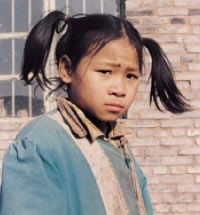Han Chinese, Min Dong in China

Photo Source:
Copyrighted © 2026
Operation China, Asia Harvest All rights reserved. Used with permission |
Send Joshua Project a map of this people group.
|
| People Name: | Han Chinese, Min Dong |
| Country: | China |
| 10/40 Window: | Yes |
| Population: | 10,166,000 |
| World Population: | 10,564,300 |
| Primary Language: | Chinese, Min Dong |
| Primary Religion: | Non-Religious |
| Christian Adherents: | 10.00 % |
| Evangelicals: | 9.10 % |
| Scripture: | Complete Bible |
| Ministry Resources: | No |
| Jesus Film: | Yes |
| Audio Recordings: | Yes |
| People Cluster: | Chinese |
| Affinity Bloc: | East Asian Peoples |
| Progress Level: |
|
Introduction / History
The Min Dong are part of the Min group of languages which are distinct from Mandarin and other Chinese varieties.
The Southern and Northern Dynasties (420-589): China was reeling under the burden of war and had divided into two ruling kingdoms. Both the southern and northern kingdoms at this time were actually ruled by several different dynasties. In the fifth century the Tuoba tribe defeated all its opposition in the northern kingdom. New rulers solidified authority by introducing a land reform movement. Buddhism, introduced from India, flourished during this period.
What Are Their Lives Like?
Many Min Dong Chinese living along the coast are fishermen, earning their income from the bounty of the Taiwan Strait.
What Are Their Beliefs?
In the ancient past the Chinese appear to have had a sense of love, kinship and filial feeling for Shang Di, the Creator God. Each year, the emperor gave the following recitation as he sacrificed at the Temple of Heaven: "You hear us and regard us as a Father. I, your child, dull and unenlightened, am unable to show forth my dutiful feeling. Your sovereign goodness is infinite. As a potter, You have made all living things. Your sovereign goodness is infinite. Great and small are sheltered (by your love). With great kindness You did bear with us, and not withstanding our demerits, do grant us life and prosperity."
Generally speaking, the Min Dong have proven more receptive to Christianity than Chinese in other parts of the country. In the thirteenth century, Marco Polo came across a large body of believers in Fugiu [now Fuzhou City]. "They had booked... found to be the words of the Psalter. ... And thus they had in a certain temple of theirs three figures painted, who had been three apostles of the seventy who had gone preaching throughout the world, and they said that those had taught their ancestors in that religion long ago and that that faith had already been preserved among them for seven hundred years, but for a long time they had been without teaching and so were ignorant of the chief things." Dr. Nathan Site, an American Methodist, arrived in Fujian in 1866. He was the first missionary to Fujian in the modern Protestant era. Today a good percentage of the Min Dongs are Christian.
What Are Their Needs?
Min Dong churches need revival fire.
Prayer Points
Pray for Min Dong disciples to disciple others.
Pray for Min Dong churches to exhibit the fruit of the Holy Spirit, drawing others to the Lord.
Pray for the Lord to abundantly provide for the Min Dong as a testimony of his goodness and power.